Greece steps off the sidelines to support Ukraine but faces balancing act with an unconvinced public
The Greek response to Russia’s war is unprecedented from a foreign policy perspective, yet the country’s political opposition and many of its citizens are against Athens getting too involved, writes Moira Lavelle
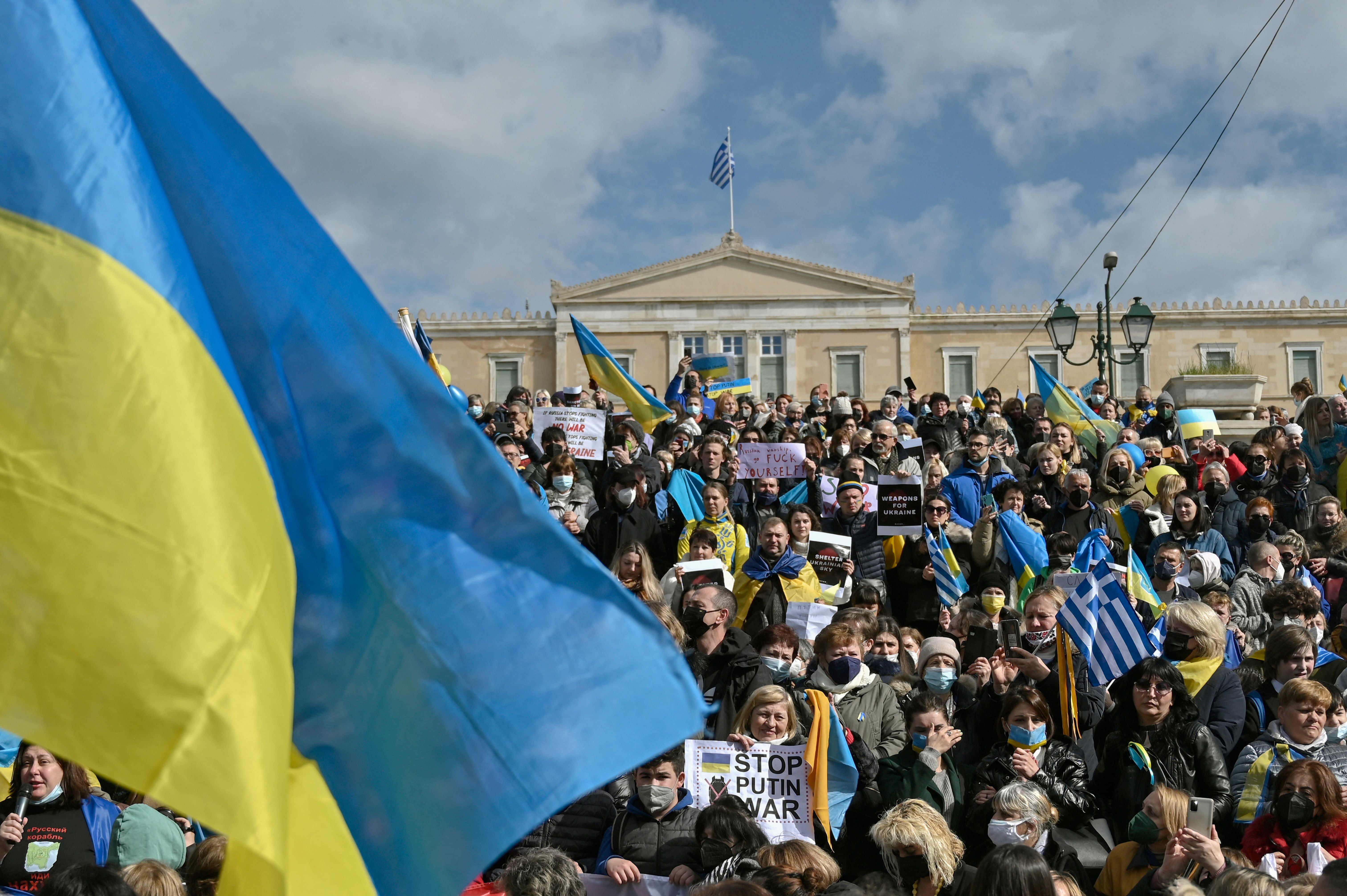
When Ukrainian president Volodymyr Zelensky delivered a speech via teleconference to Greece’s parliament last week, in which he made allusions to the political, cultural and religious ties between the two countries, it was greeted with hearty applause.
But the mood changed after Mr Zelensky gave the floor – virtually speaking – to two Ukrainian fighters with Greek roots.
When one of the soldiers mentioned that he was a member of the Azov battalion, a far-right militia with neo-Nazi roots, three members of Greece’s opposition party stood up and walked out. For days, the Greek media covered the incident with varying degrees of outrage, regret, condemnation, and understanding.
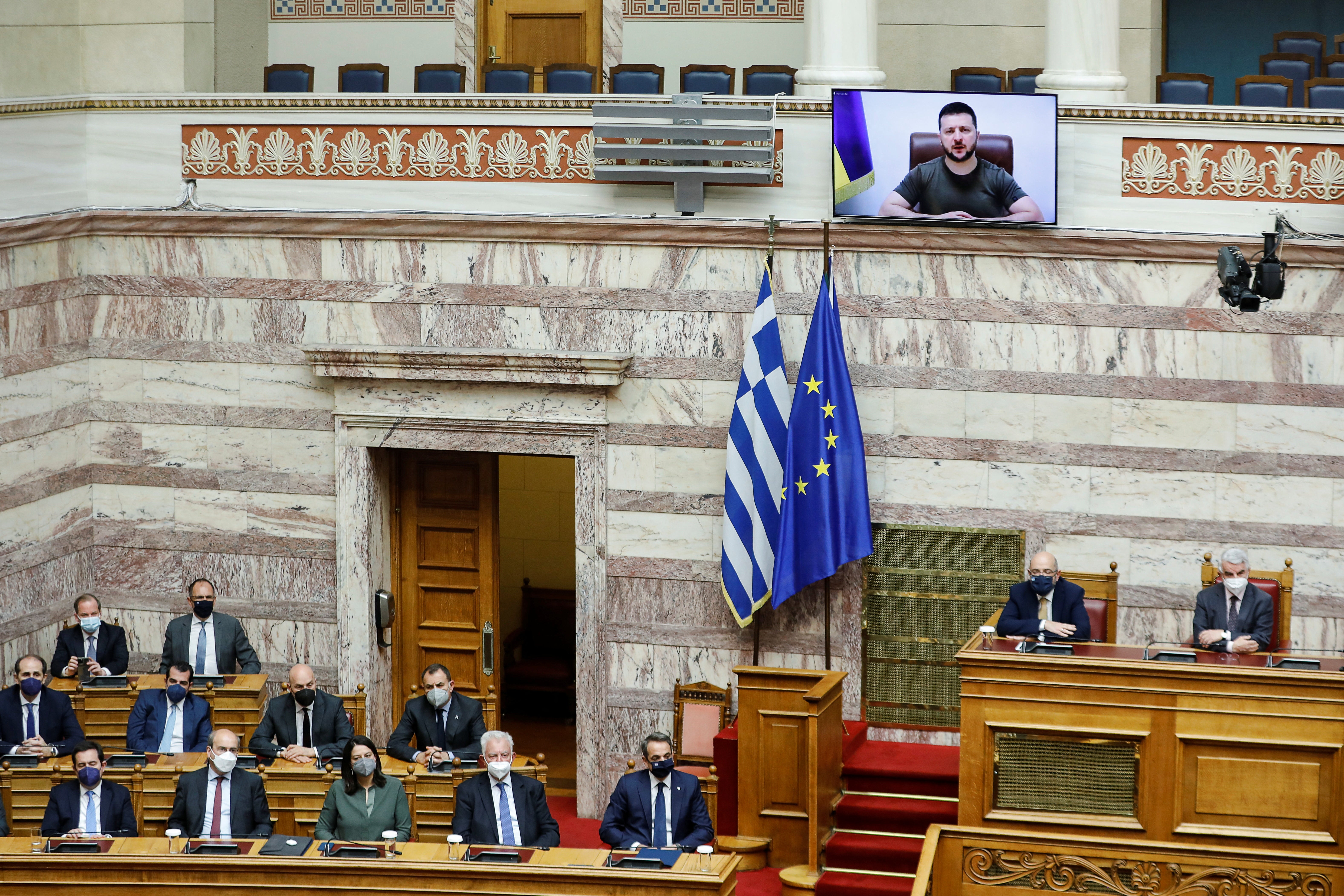
The mixed reaction to the video address to parliament reflects the divided response within Greece following Vladimir Putin’s invasion.
On the one hand, Greece has become more involved in the war in Ukraine than it has in other conflicts abroad. The country has sent arms, military equipment and supplies; its foreign minister went on a humanitarian mission to Odesa; and the government has stated that it will request an international investigation into alleged war crimes in the besieged city of Mariupol.
But listening to Greece’s largest leftist opposition party, Syriza – and to public opinion – reveals a different perspective: there is opposition to the country’s involvement in the conflict, and even pro-Russian sentiment in some quarters.
Just a few days after the war began in Ukraine on 24 February, Athens announced that it would be sending military equipment to Ukraine – two planes filled with ammunition, Kalashnikov rifles and anti-tank missiles – as well as humanitarian aid. This marked a huge departure from Greece’s response to other global conflicts, where it has remained largely on the sidelines.
“Because we have always been on the right side of history, we do the same now,” said Greek prime minister Kyriakos Mitsotakis in a debate in parliament on 1 March. “We belong to the west.”
The day before, the government had announced that ten Greek nationals had been killed in Mariupol, which has endured some of the war’s heaviest bombardment and worst suffering.
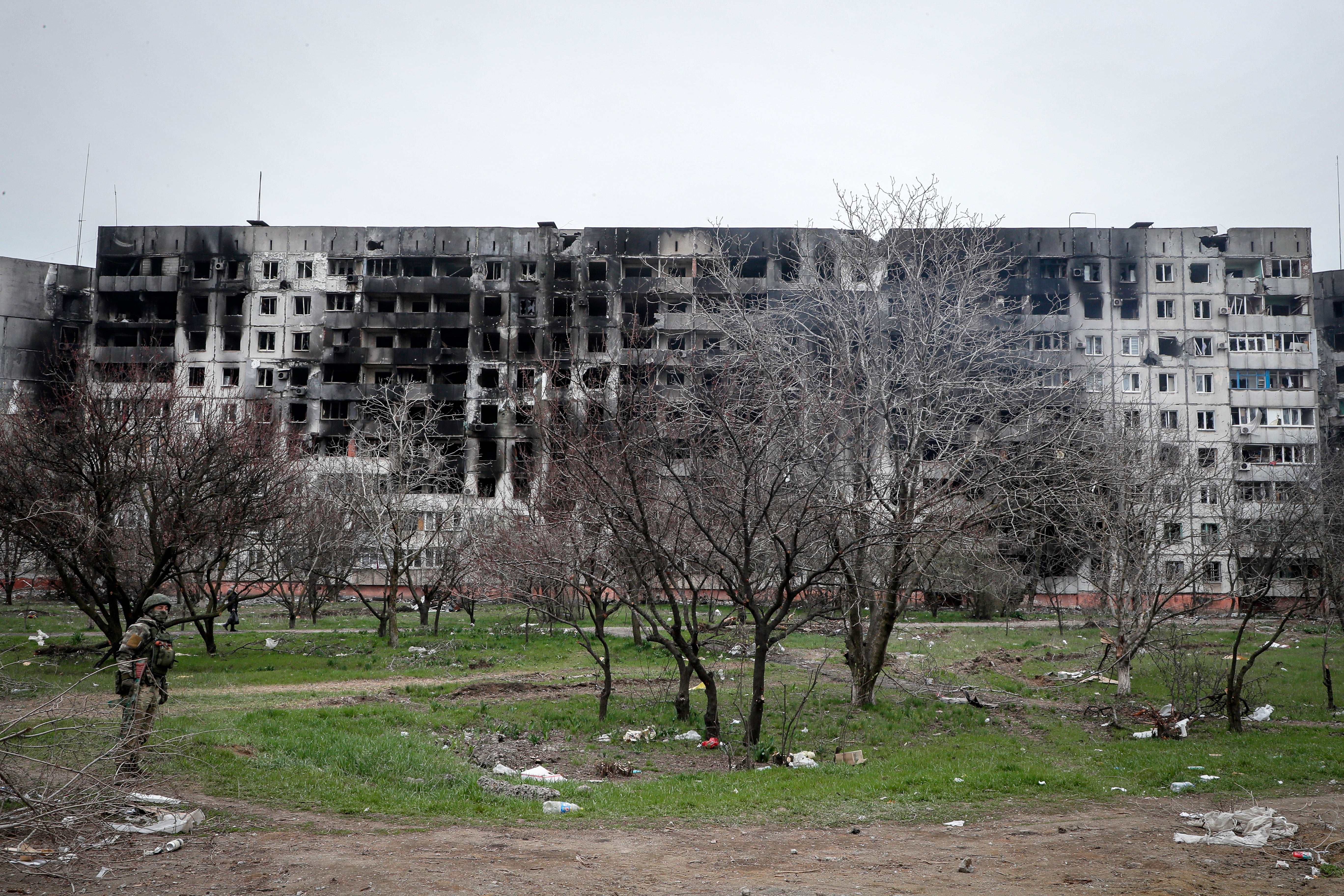
There are some 150,000 ethnic Greeks across Ukraine, with especially large communities in Odesa and Mariupol – a fact that has featured heavily in Greece’s actions and rhetoric during the war.
As the bombing of Mariupol raged on, the consul general of Greece stayed in place from 28 February until mid-March, and was the last EU diplomat to leave the besieged city.
When the city’s maternity hospital was bombed, Mr Mitsotakis offered support: “Greece is ready to rebuild the maternity hospital in Mariupol, the center of the Greek minority in Ukraine, a city dear to our hearts and symbol of the barbarity of the war,” he tweeted.
At the beginning of April, Greece’s foreign minister Nikos Dendias visited Odesa to deliver humanitarian aid, meet with members of the Greek diaspora, and reopen the country’s consulate in the city. He had initially planned to go to Mariupol, but the intense fighting scuppered that idea.
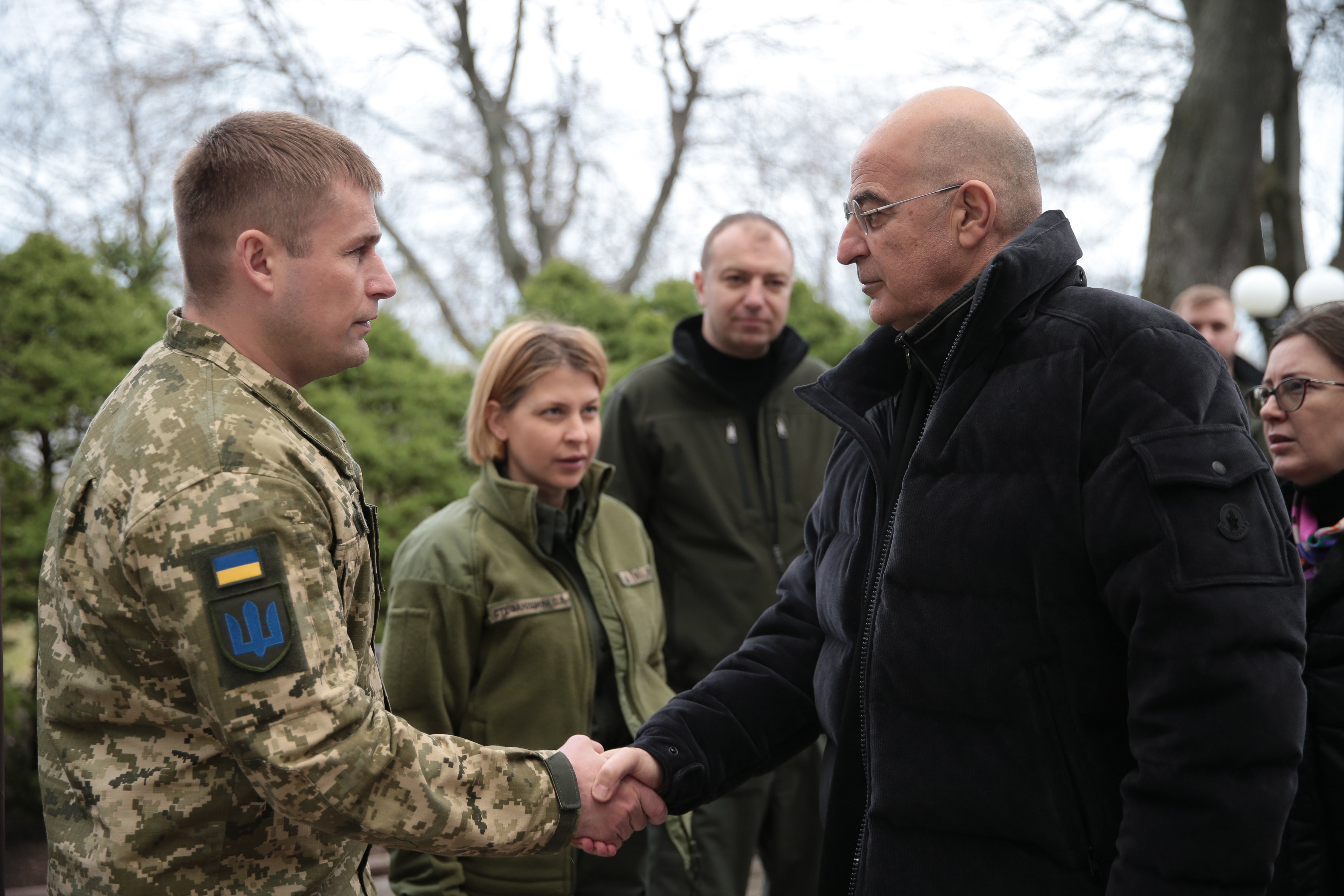
Just a few days later, Athens announced it would request an investigation by the International Court of Justice into possible war crimes in Mariupol, and ordered 12 Russian diplomats to leave Greece, declaring them “personae non gratae”.
“The killing of many ethnic Greeks by Russian bombardments in Mariupol and other cities has poisoned relations between Athens and Moscow, possibly for many years,” Dr Emmanuel Karagiannis, a global security expert at King’s College London, told The Independent.
But Greece’s support for Ukraine also touches on the country’s own defence concerns. Both Russian and Greek politicians have made comparisons between Russia’s war in Ukraine and Turkey’s invasion of Cyprus in 1974.
The Turkish military invaded Cyprus in 1974 in response to a coup that had been staged with support from Athens. Turkey occupied a large portion of the northern part of the island and declared it a new republic, Northern Cyprus, which is recognised neither by Greece nor by much of the world.
The island is still divided by a UN-patrolled demilitarised zone, and is a point of great tension between Greece and Turkey.
In late February, Russia’s foreign minister, Sergei Lavrov, suggested that Russians in the Donbas region of Ukraine should be treated like the ethnic Turks are in northern Cyprus.
Mr Mitsotakis has made similar comparisons. “With what moral status and stature would we ask for such help if we are in the same situation?” he said, referring to the arms sent to Ukraine.
Mr Karagiannis said Russia’s invasion holds many parallels with Turkey’s invasion of Cyprus. “Both Moscow and Ankara have claimed that they seek to protect compatriots who have supposedly suffered by discrimination or even ‘genocide’,” he said. “In reality, both Russia and Turkey have weaponised minorities to undermine the sovereignty of independent states for geopolitical and ideological reasons. Greece supports Ukraine like it supports Cyprus in this regard.”
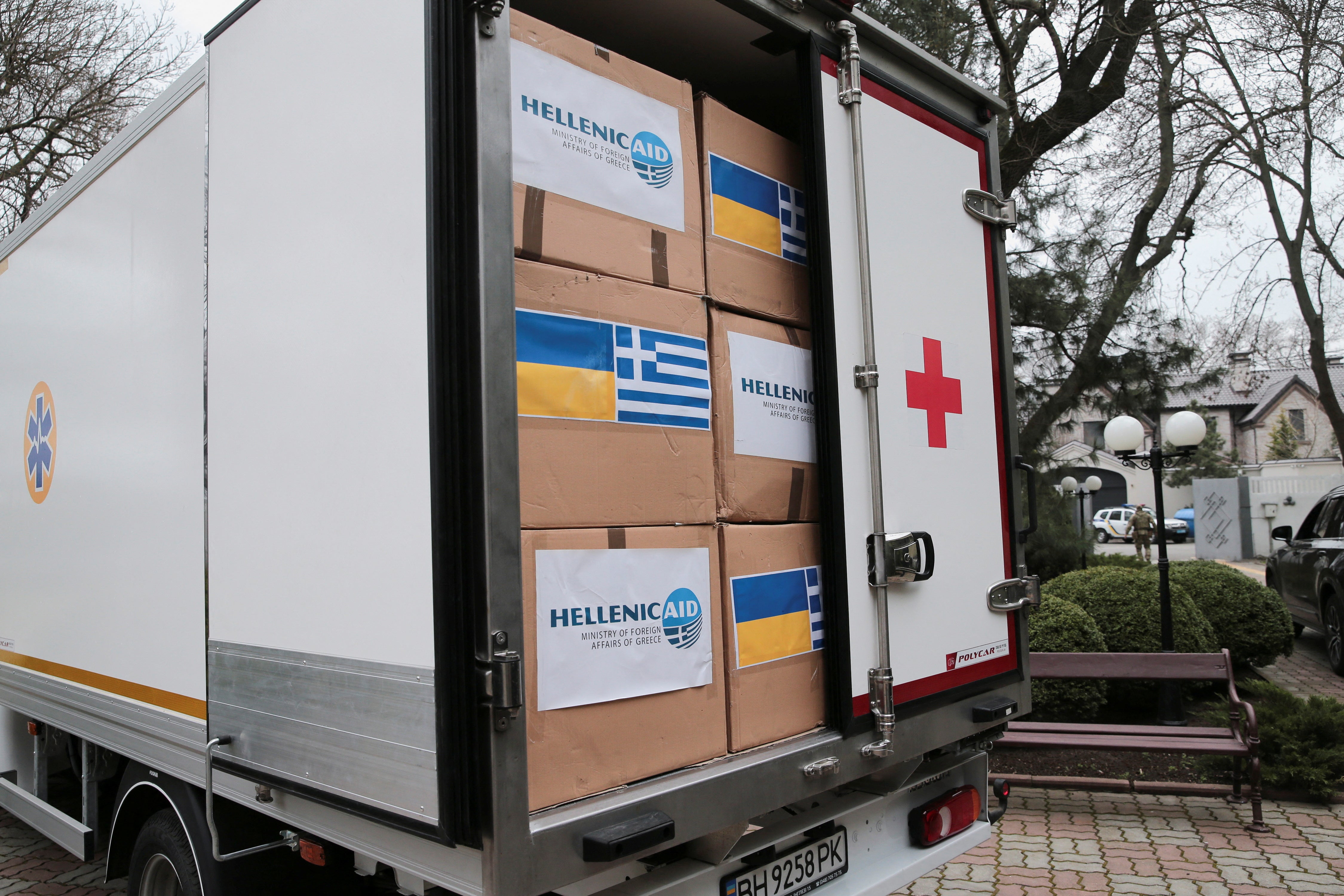
However, most Greeks are not so pleased with the country’s involvement in the war.
In a poll conducted by public opinion research institute Public Issue in March, 68 per cent of 1,000 respondents said they were dissatisfied generally with the Greek government’s position regarding the situation in Ukraine, and 54 per cent said they completely disagreed with the provision of military aid to Kyiv.
The poll showed that, although the majority of Greeks are opposed to the invasion, many believe the country should remain neutral during the conflict.
And while there have been dozens of pro-Ukraine demonstrations in Athens, there has been at least one rally in support of Russia.
Greece’s main opposition party, Syriza, has said it is against supplying arms to Ukraine. “What is the expediency of turning Greece, a country constantly involved in peace initiatives, into a country involved in the war?” its leader and former prime minister Alexis Tsipras asked in parliament on 1 March.
Instead he pushed for sanctions on Russia, the delivery of humanitarian aid, and the welcoming of refugees, warning that any military involvement could prove dangerous for Greece.
Greece has so far welcomed more than 19,200 Ukrainian refugees, who have arrived in the country via a variety of border crossings. Greece immediately activated a temporary protection regime for the displaced Ukrainians, and began registering applications.
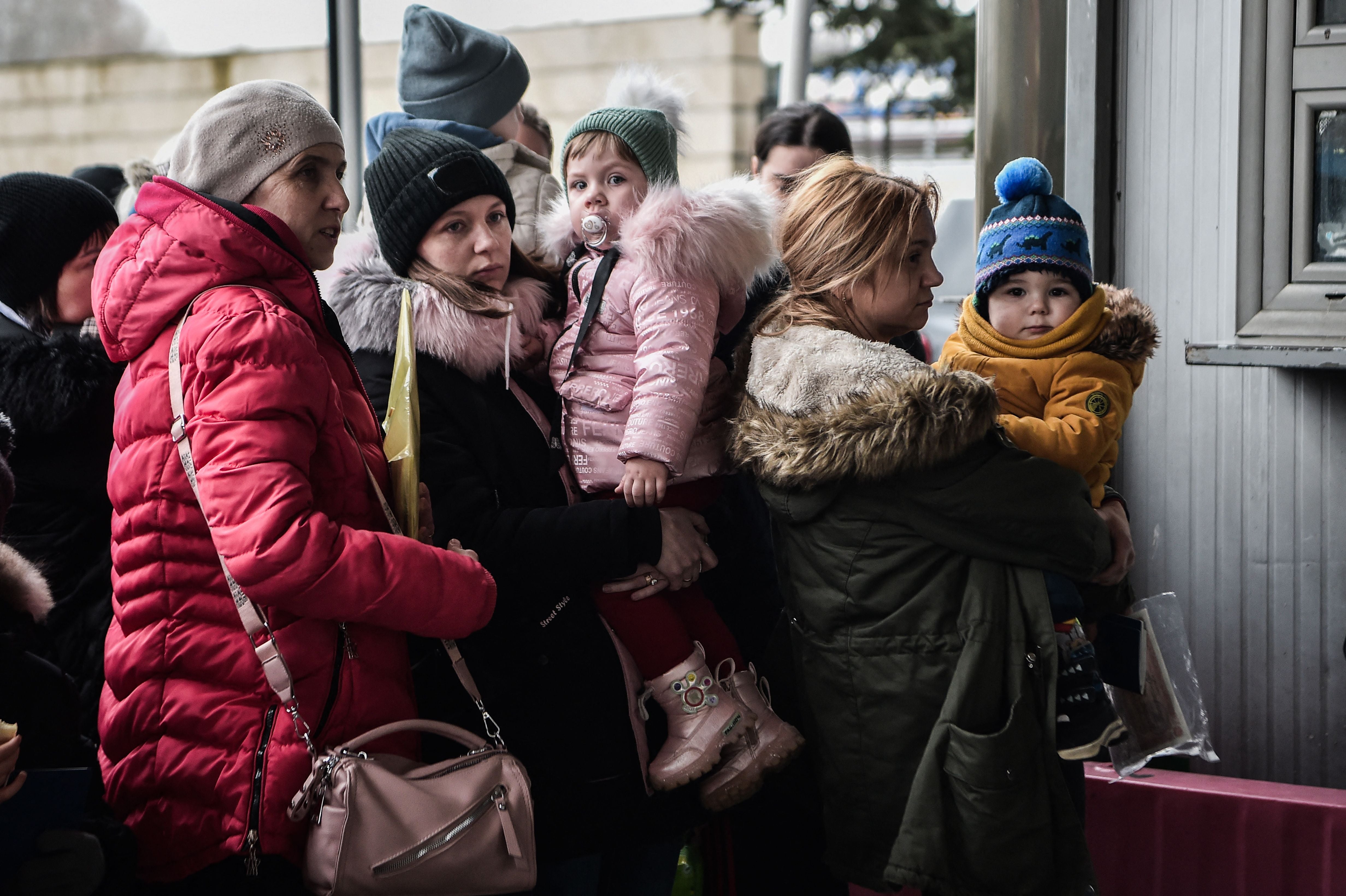
Asylum seekers from other countries are often pushed back illegally from Greece’s borders. If they are able to enter, many are faced with years-long waiting times for similar procedures, and are frequently forced to do so in camps or detention centres.
At the end of April, a concert was held under the slogan “No to war – No to Russian invasion – The only option is peace”. It featured dozens of Greece’s biggest stars, and was attended by thousands of people.
Representatives of Syriza attended the concert and cited it as proof of support for their position, calling on the current New Democracy government to “acknowledge its mistake in making Greece part of the war by sending weapons to Ukraine instead of humanitarian aid”.
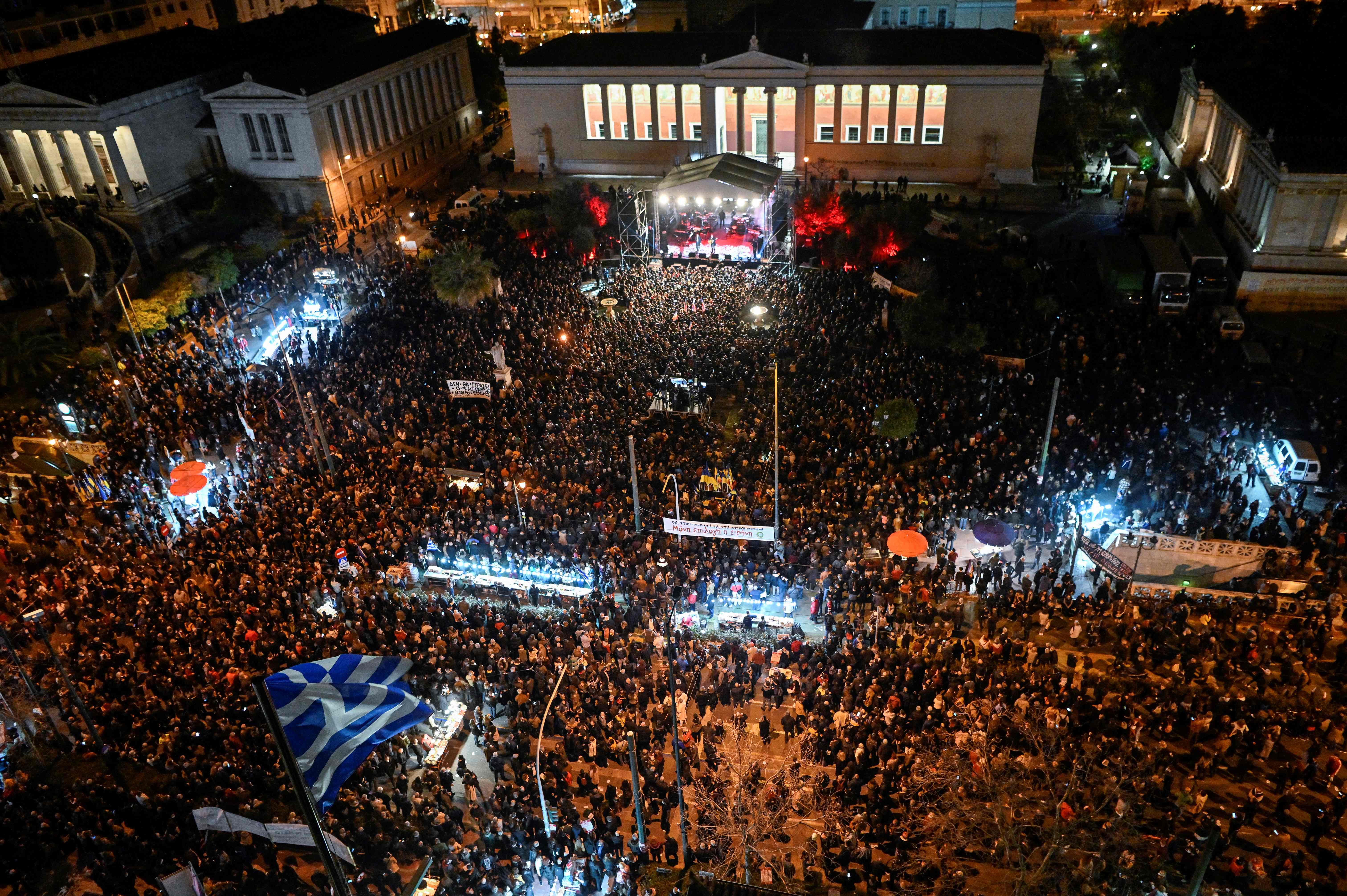
When Mr Zelensky spoke before the Greek parliament last week, he was welcomed by speaker Costas Tassoulas, who talked about the importance of the Greek community in Mariupol and the similarities with the invasion of Cyprus.
The Ukrainian president picked up on these threads, opening with plaintive descriptions of Mariupol, calling Odesa a “great centre of Hellenism”, and saying: “We, Greeks and Ukrainians together, must not allow them to destroy our common cultural heritage.”
But in local media, the speech given by the fighter from the Azov battalion almost overshadowed Mr Zelensky’s address, and offered Greece’s opposition another opportunity to criticise the government’s stance on the conflict, with opposition leader Mr Tsipras stating: “Solidarity with the Ukrainian people is a given. But the Nazis cannot have a say in parliament.”






Join our commenting forum
Join thought-provoking conversations, follow other Independent readers and see their replies
21Comments